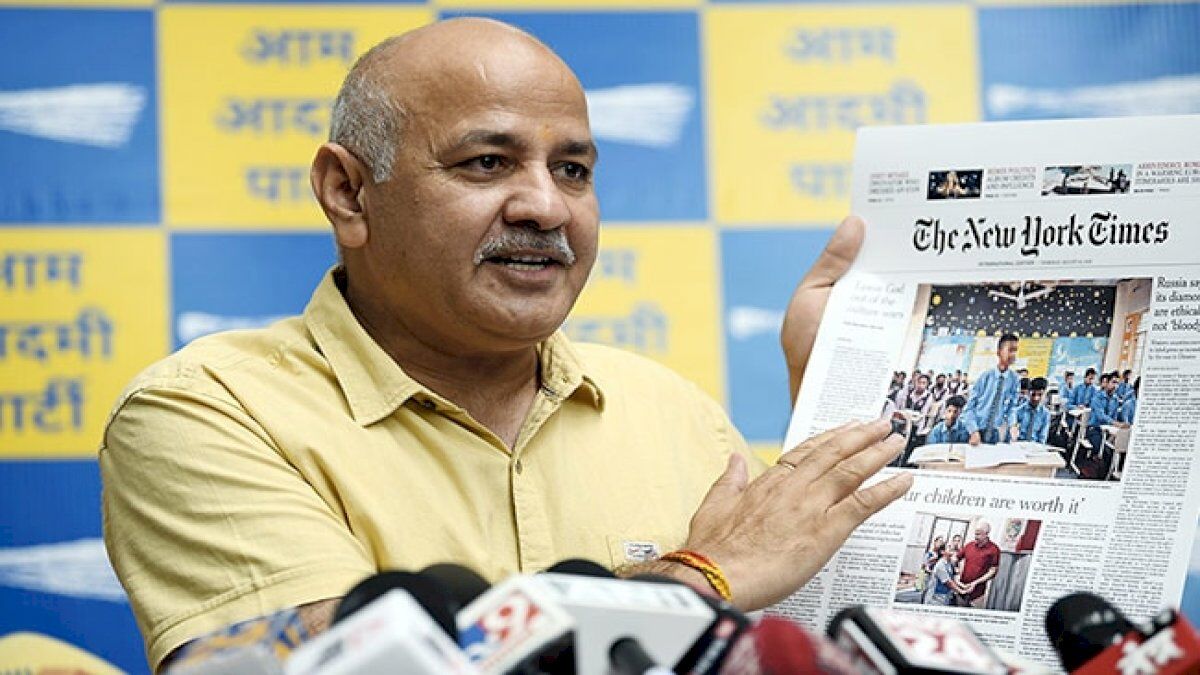Between two evils

The Central Bureau of Investigation (CBI) issued lookout circulars against eight of the 15 accused — excluding education minister Manish Sisodia — in Delhi liquor policy rollout case. The lookout circular has been issued on the basis of CBI's assessment of flight risk. Notably, two of the 15 accused in the case are already abroad. With its health minister already in custody, and education minister being on CBI's radar, the problems of the Aam Aadmi Party (AAP) government are showing no signs of abatement. For a party that has its root in the anti-corruption movement, serious charges of corruption indeed pose a foundational threat to it. There hardly remains any ambiguity over the fact that the ruling parties at Centre have central agencies as tools at their dispensation to target opposition parties. Central governments have been doing this for decades but the trend has almost got normalised over the past couple of years. This normalisation is indeed worrying. The hue and cry made by opposition-ruled states has only consolidated this trend — allowing the Bharatiya Janata Party (BJP) to go after 'targets' almost without a veil of principle. Corruption is an uncontested evil for any nation, and it is difficult to criticise central agencies for going after alleged corrupts but, at the same time, it is also not a wise thing to allow one evil to prosper to curtail the other! Biased and targeted investigation against individuals is in itself a corrupt practice and a threat to democratic principles of equality and commitment to abide by the rule of law. Misuse of central investigation agencies appears to have reached a saturation point. Concerned authorities and institutions need to put checks on the longstanding malpractice. Politicisation of critically important agencies like CBI and Enforcement Directorate (ED) is contrary to national interest and a compromise with national security. This is nowhere to suggest that the corruption charges against Manish Sisodia and others should not be probed. A fair probe is pertinent but the entanglement of law and politics is disturbing. It is not just the BJP that might be using the CBI as a wedge against the AAP, but the latter is also using the probe as a lever to consolidate the Modi vs Kejriwal narrative ahead of the 2024 general elections. It appears that the excise policy rollback case is part of a larger battle between the AAP and the BJP. Arvind Kejriwal has proved his political competence with his performance in Delhi and Punjab assembly polls. In Punjab, particularly, he has shown his ability to rise rapidly, which must terrify the BJP. Now that AAP has heralded to set its foot in the BJP stronghold of Gujarat, apart from Himachal Pradesh, the BJP was expected to go all out against the AAP. The AAP, at the same time, is aware that the BJP's reactionary attitude against it will shape a public perception to AAP's advantage. The excise policy controversy against AAP might contrarily provide it the much-needed fuel for its national ambitions. It may turn out the other way as well. AAP is aware that it will sooner or later acquire a national party status, and is looking to shape public perception accordingly. The political courses of the two parties will determine the winner or the loser. However, it is the people of Delhi who stand to lose for sure, at least momentarily. The city government boasts of internationally acclaimed performances in health and education — the two fundamental building blocks of human development. And, ironically, both the departments are bound to suffer as Health Minister Satyendra Jain and Education Minister Manish Sisodia are under the radar of investigation agencies. It should be left to readers' wisdom to decide who should be held responsible for this downgrade, if it occurs. Investigation against corruption charges is pertinent. But, at the same time, we have a lot more at stake.



